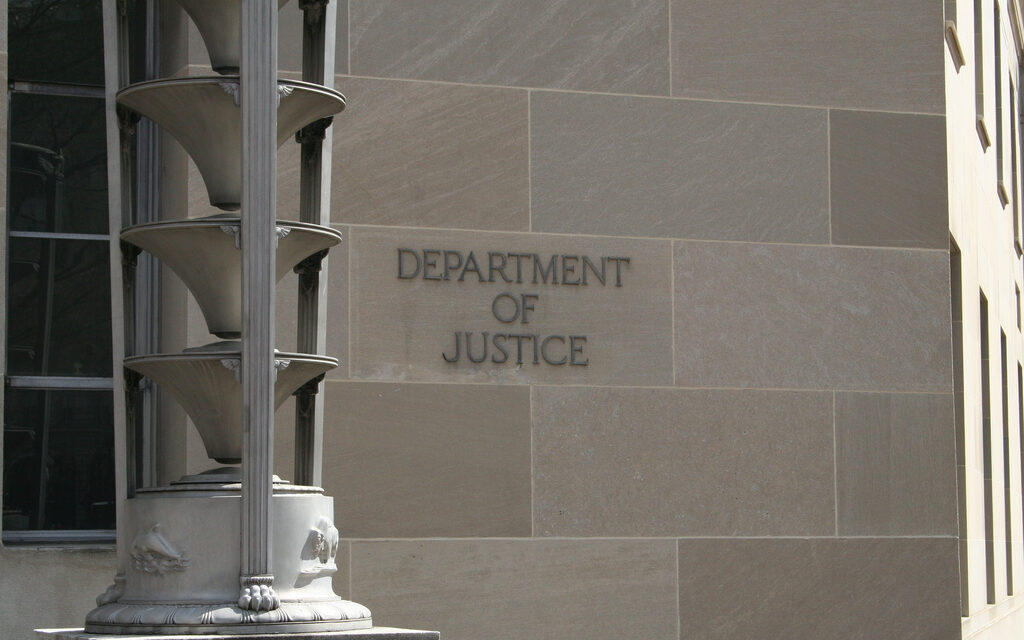The New York Times editorial board scolds North Carolina Republicans for losing a case in federal court in which their voter suppression laws were found to have racist intent. More on that in a second.
Over in Wisconsin, the Republicans lost in court on Friday, too.
In Wisconsin, where one federal judge already had eased restrictions on voter-ID requirements, a second judge found that additional elements of the law passed by the legislature and signed by Gov. Scott Walker (R-Wis.) were unconstitutional.
U.S. District Judge James D. Peterson suggested he would strike the entire law if he were not bound by the Supreme Court’s decision that states may use properly written voter-ID laws to guard against voter fraud.
“The evidence in this case casts doubt on the notion that voter ID laws foster integrity and confidence,” Peterson wrote. “The Wisconsin experience demonstrates that a preoccupation with mostly phantom election fraud leads to real incidents of disenfranchisement, which undermine rather than enhance confidence in elections, particularly in minority communities. To put it bluntly, Wisconsin’s strict version of voter ID law is a cure worse than the disease.”
These laws were enacted in the wake of the Supreme Court case Shelby County v. Holder that was handed down on June 25, 2013. For North Carolina, the ruling freed them of restrictions on changing their voting laws that had been in place since the Voting Rights Act of 1965.
Congress enacted the Voting Rights Act of 1965 to address entrenched racial discrimination in voting, “an insidious and pervasive evil which had been perpetuated in certain parts of our country through unremitting and ingenious defiance of the Constitution.”
Section 5 of the Act contains a “preclearance” requirement that requires certain states and local governments to obtain a determination by the United States Attorney General or a three-judge panel of the United States District Court for the District of Columbia that changes to their voting laws or practices do not “deny or abridge the right to vote on account of race, color, or membership in a language minority group”, before those changes may be enforced.
Section 4(b) contains the coverage formula that determines which states and local governments are subject to preclearance under Section 5.
Unlike Wisconsin, North Carolina was a state “subject to preclearance under Section 5” because of its history of Jim Crow laws restricting the black franchise. However, in Shelby, the five conservatives on the Supreme Court struck down Section 4(b) as unconstitutional, meaning that the formula used to determine that North Carolina and other states still could not be trusted not to disenfranchise blacks could not be used to demand preclearance for changes in election laws.
Unless Congress created a new formula that could pass the conservative Justices’ sniff test, Section 5 would be rendered useless for lack of Section 4(b). There were Republicans in Congress like Rep. James Sensenbrenner who were eager to work on a new formula, but he was overruled.
In Ruth Bader Ginsburg’s dissent, she acknowledged that (in 2013) there was much less evidence of racial discrimination in voting laws than there had been in 1965, but, she wrote, “throwing out preclearance when it has worked and is continuing to work to stop discriminatory changes is like throwing away your umbrella in a rainstorm because you are not getting wet.”
The conservatives on the Court didn’t see it that way, but they were proven wrong immediately. No sooner than the Shelby case was decided many of the previously covered states began passing racially discriminatory laws aimed at suppressing the black vote. In North Carolina, it was particularly blatant:
Significantly, the appeals court noted that the restrictions were enacted by the state within weeks of the Supreme Court ruling that struck down a crucial part of the Voting Rights Act — the requirement that states with histories of racial discrimination obtain preclearance from the federal government for any voting changes. The Legislature moved quickly, the appellate judges found, and first “requested data on the use, by race, of a number of voting practices.” The General Assembly then enacted an “omnibus” bill of restrictions, “all of which disproportionately affected African-Americans,” the court found.
The court also noted that Republican lawmakers were swift to respond “in the immediate aftermath of unprecedented African-American participation” in 2012, which is particularly troubling in state with a history of racially polarized voting. If the voting restrictions had not been struck down, they would have been a sizable hurdle for black voters.
“The new provisions target African Americans with almost surgical precision” and “impose cures for problems that did not exist,” Judge Diana Gribbon Motz wrote for the panel. “Thus the asserted justifications cannot and do not conceal the State’s true motivation.”
In fact, Republican election officials across the country were ready to get to work restoring Jim Crow-style laws: “At the state level, Texas and Mississippi officials pledged within hours of the decision to enforce voter ID laws that had not been precleared by the Attorney General.”
The very conservative Fifth Circuit Court of Appeals just struck down a voter suppression regime in Texas. The Leadership Conference Education Fund has a new report out that details post-Shelby efforts to suppress the vote in North Carolina, Virginia, Georgia, Florida, Ohio, and Arizona.
What’s probably changed since 1965 is the way vote suppressionists see the world. In the Jim Crow South, part of the aim was to prevent blacks from being elected to any positions at all, even local positions in all-black communities. Today, the motivation is more about winning statewide elections for the U.S. Senate, governor, and for states’ presidential electors. Obviously, this kind of suppression can also help in some of the more closely contested House districts, but these are unfortunately few in our system.
In other words, in the old regime, preserving a system of apartheid was more important than winning a few otherwise losable elections, whereas today the goal is less ideologically racist than racist as a means to other ends.
A different kind of power is trying to be protected.
Fortunately, the Courts (including some rather conservative Courts) have not been sympathetic to these voter suppression tactics. But, ever since the five conservatives on the Supreme Court handed down Shelby, there’s been a massive cleanup in aisle three. To really fix the problem, we need Merrick Garland confirmed as the replacement for Antonin Scalia. Either that, or we need Democratic majorities in Congress and a Democratic president.
You’d think there would be more shame among Republicans at having the governor and legislature of North Carolina called out by a federal court as being “surgically precise” racists.
But you’d be wrong.





